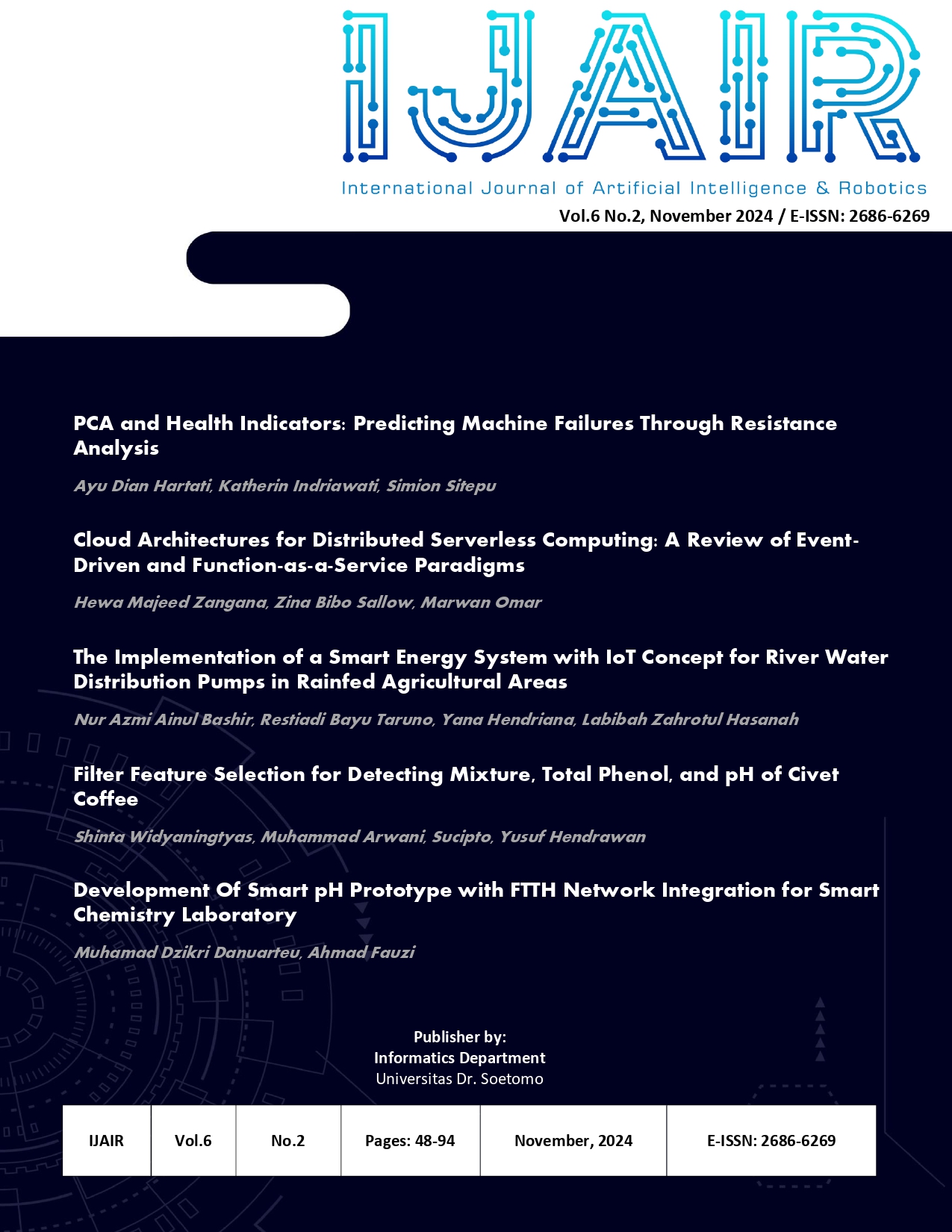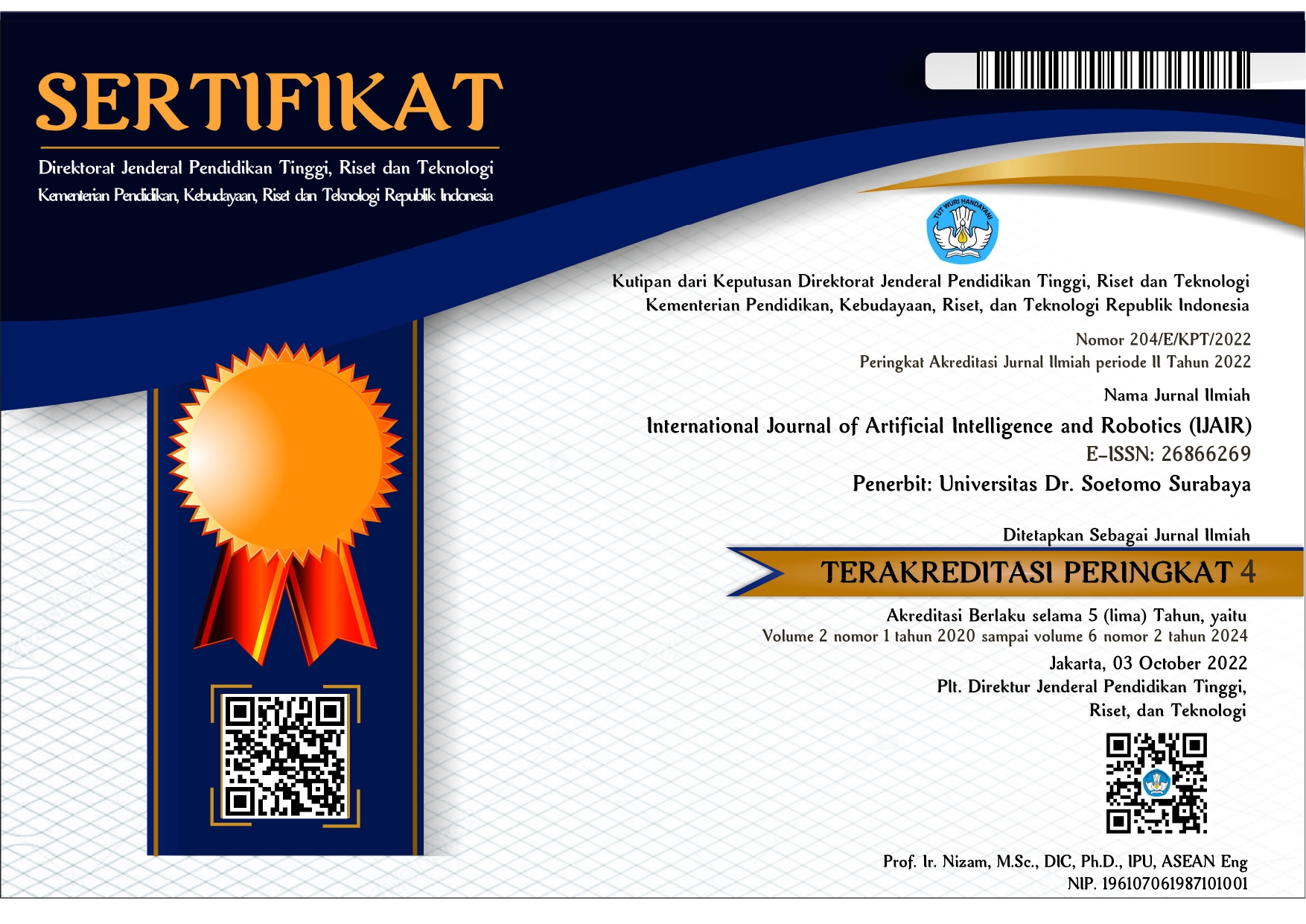Cloud Architectures for Distributed Serverless Computing: A Review of Event-Driven and Function-as-a-Service Paradigms
 Abstract views: 199
,
Abstract views: 199
,
 PDF downloads: 158
PDF downloads: 158
Abstract
The advent of serverless computing has revolutionized the cloud computing landscape, providing scalable, cost-effective, and flexible solutions for modern application development. This paper comprehensively reviews cloud architectures for distributed serverless computing, focusing on event-driven and Function-as-a-Service (FaaS) paradigms. This research explores the fundamental principles and benefits of serverless computing, highlighting its impact on development practices and infrastructure management. The review covers key components, including orchestration, scalability, and security, and examines leading serverless platforms and frameworks. Through critically analyzing current research and industry practices, identify challenges and propose future directions for optimizing serverless architectures. This paper aims to explain how event-driven and FaaS paradigms reshape cloud computing, enabling developers to build resilient and efficient applications without server management. Our research found that event-driven architectures in serverless computing offer significant advantages in scalability, real-time processing, and resource utilization. FaaS paradigms provide modularity, granularity, and cost-effectiveness, making them suitable for various applications. Cloud-edge collaborative architectures are crucial for achieving low-latency and high-performance serverless applications but require robust security, privacy, and resource management frameworks.
Downloads
References
G. Bao and P. Guo, "Federated learning in cloud-edge collaborative architecture: key technologies, applications and challenges," Journal of Cloud Computing, vol. 11, no. 1, p. 94, 2022.
G. Baranwal, D. Kumar, and D. P. Vidyarthi, "Blockchain-based resource allocation in cloud and distributed edge computing: A survey," Comput Commun, 2023.
M. S. Aslanpour et al., "Serverless edge computing: vision and challenges," in Proceedings of the 2021 Australasian computer science week multiconference, 2021, pp. 1–10.
M. Bukhsh, S. Abdullah, and I. S. Bajwa, "A decentralized edge computing latency-aware task management method with high availability for IoT applications," IEEE Access, vol. 9, pp. 138994–139008, 2021.
S. Chen, Q. Li, M. Zhou, and A. Abusorrah, "Recent advances in collaborative scheduling of computing tasks in an edge computing paradigm," Sensors, vol. 21, no. 3, p. 779, 2021.
C. Cicconetti, M. Conti, and A. Passarella, "A decentralized framework for serverless edge computing in the internet of things," IEEE Transactions on Network and Service Management, vol. 18, no. 2, pp. 2166–2180, 2020.
F. Dressler et al., "V-Edge: Virtual edge computing as an enabler for novel microservices and cooperative computing," IEEE Netw, vol. 36, no. 3, pp. 24–31, 2022.
S. Duan et al., "Distributed artificial intelligence empowered by end-edge-cloud computing: A survey," IEEE Communications Surveys & Tutorials, vol. 25, no. 1, pp. 591–624, 2022.
P. J. Escamilla-Ambrosio, A. Rodríguez-Mota, E. Aguirre-Anaya, R. Acosta-Bermejo, and M. Salinas-Rosales, "Distributing computing in the internet of things: cloud, fog and edge computing overview," in NEO 2016: Results of the Numerical and Evolutionary Optimization Workshop NEO 2016 and the NEO Cities 2016 Workshop held on September 20-24, 2016 in Tlalnepantla, Mexico, Springer, 2018, pp. 87–115.
A. J. Ferrer, J. M. Marquès, and J. Jorba, "Towards the decentralized cloud: Survey on approaches and challenges for mobile, ad hoc, and edge computing," ACM Computing Surveys (CSUR), vol. 51, no. 6, pp. 1–36, 2019.
Y. Huang, X. Qiao, S. Dustdar, J. Zhang, and J. Li, "Toward decentralized and collaborative deep learning inference for intelligent iot devices," IEEE Netw, vol. 36, no. 1, pp. 59–68, 2022.
X. Li, X. Huang, C. Li, R. Yu, and L. Shu, "EdgeCare: Leveraging edge computing for collaborative data management in mobile healthcare systems," IEEE Access, vol. 7, pp. 22011–22025, 2019.
Z. Nezami, K. Zamanifar, K. Djemame, and E. Pournaras, "Decentralized edge-to-cloud load balancing: Service placement for the Internet of Things," IEEE Access, vol. 9, pp. 64983–65000, 2021.
Q. Peng et al., "A decentralized collaborative approach to online edge user allocation in edge computing environments," in 2020 IEEE International Conference on Web Services (ICWS), IEEE, 2020, pp. 294–301.
Y. Qi, X. Wang, H. Li, and J. Tian, "Leveraging Federated Learning and Edge Computing for Recommendation Systems within Cloud Computing Networks," arXiv preprint arXiv:2403.03165, 2024.
R. Sharma, C. A. Chan, and C. Leckie, "Evaluation of centralized vs distributed collaborative intrusion detection systems in multi-access edge computing," in 2020 IFIP Networking Conference (Networking), IEEE, 2020, pp. 343–351.
Y. Sun, H. Ochiai, and H. Esaki, "Decentralized deep learning for multi-access edge computing: A survey on communication efficiency and trustworthiness," IEEE Transactions on Artificial Intelligence, vol. 3, no. 6, pp. 963–972, 2021.
M. Talebkhah, A. Sali, M. Marjani, M. Gordan, S. J. Hashim, and F. Z. Rokhani, "Edge computing: architecture, applications and future perspectives," in 2020 IEEE 2nd International Conference on Artificial Intelligence in Engineering and Technology (IICAIET), IEEE, 2020, pp. 1–6.
L. Wang, Y. Xu, H. Xu, M. Chen, and L. Huang, "Accelerating decentralized federated learning in heterogeneous edge computing," IEEE Trans Mob Comput, 2022.
Y. Wang, C. Yang, S. Lan, L. Zhu, and Y. Zhang, "End-Edge-Cloud Collaborative Computing for Deep Learning: A Comprehensive Survey," IEEE Communications Surveys & Tutorials, 2024.
H. Wu, Z. Zhang, C. Guan, K. Wolter, and M. Xu, "Collaborate edge and cloud computing with distributed deep learning for smart city internet of things," IEEE Internet Things J, vol. 7, no. 9, pp. 8099–8110, 2020.
H. Yang, Y. Liang, J. Yuan, Q. Yao, A. Yu, and J. Zhang, "Distributed blockchain-based trusted multi-domain collaboration for mobile edge computing in 5G and beyond," IEEE Trans Industr Inform, vol. 16, no. 11, pp. 7094–7104, 2020.
H. Yuan and M. Zhou, "Profit-maximized collaborative computation offloading and resource allocation in distributed cloud and edge computing systems," IEEE Transactions on Automation Science and Engineering, vol. 18, no. 3, pp. 1277–1287, 2020.
L. Yuan et al., "Coopedge: A decentralized blockchain-based platform for cooperative edge computing," in Proceedings of the Web Conference 2021, 2021, pp. 2245–2257.
L. Yuan et al., "CSEdge: Enabling collaborative edge storage for multi-access edge computing based on blockchain," IEEE Transactions on Parallel and Distributed Systems, vol. 33, no. 8, pp. 1873–1887, 2021.
H. M. Zangana and S. R. M. Zeebaree, "Distributed Systems for Artificial Intelligence in Cloud Computing: A Review of AI-Powered Applications and Services," International Journal of Informatics, Information System and Computer Engineering (INJIISCOM), vol. 5, no. 1, pp. 11–30, 2024.
O. Donati, M. Macario, and M. H. Karim, "Event-Driven AI Workflows in Serverless Computing: Enabling Real-Time Data Processing and Decision-Making," 2024.
T. Lynn, P. Rosati, A. Lejeune, and V. Emeakaroha, "A preliminary review of enterprise serverless cloud computing (function-as-a-service) platforms," in 2017 IEEE International Conference on Cloud Computing Technology and Science (CloudCom), IEEE, 2017, pp. 162–169.
M. Szalay, P. Matray, and L. Toka, "Real-time faas: Towards a latency bounded serverless cloud," IEEE Transactions on Cloud Computing, vol. 11, no. 2, pp. 1636–1650, 2022.
Copyright (c) 2024 Hewa Majeed Zangana, Zina Bibo Sallow, Marwan Omar

This work is licensed under a Creative Commons Attribution-ShareAlike 4.0 International License.
Authors who publish with International Journal of Artificial Intelligence & Robotics (IJAIR) agree to the following terms:
-
Authors retain copyright and grant the journal right of first publication with the work simultaneously licensed under a Creative Commons Attribution License (CC BY-SA 4.0) that allows others to share the work with an acknowledgment of the work's authorship and initial publication in this journal.
-
Authors are able to enter into separate, additional contractual arrangements for the non-exclusive distribution of the journal's published version of the work (e.g., post it to an institutional repository or publish it in a book), with an acknowledgment of its initial publication in this journal.
-
Authors are permitted and encouraged to post their work online (e.g., in institutional repositories or on their website) prior to and during the submission process, as it can lead to productive exchanges, as well as earlier and greater citation of published work.















